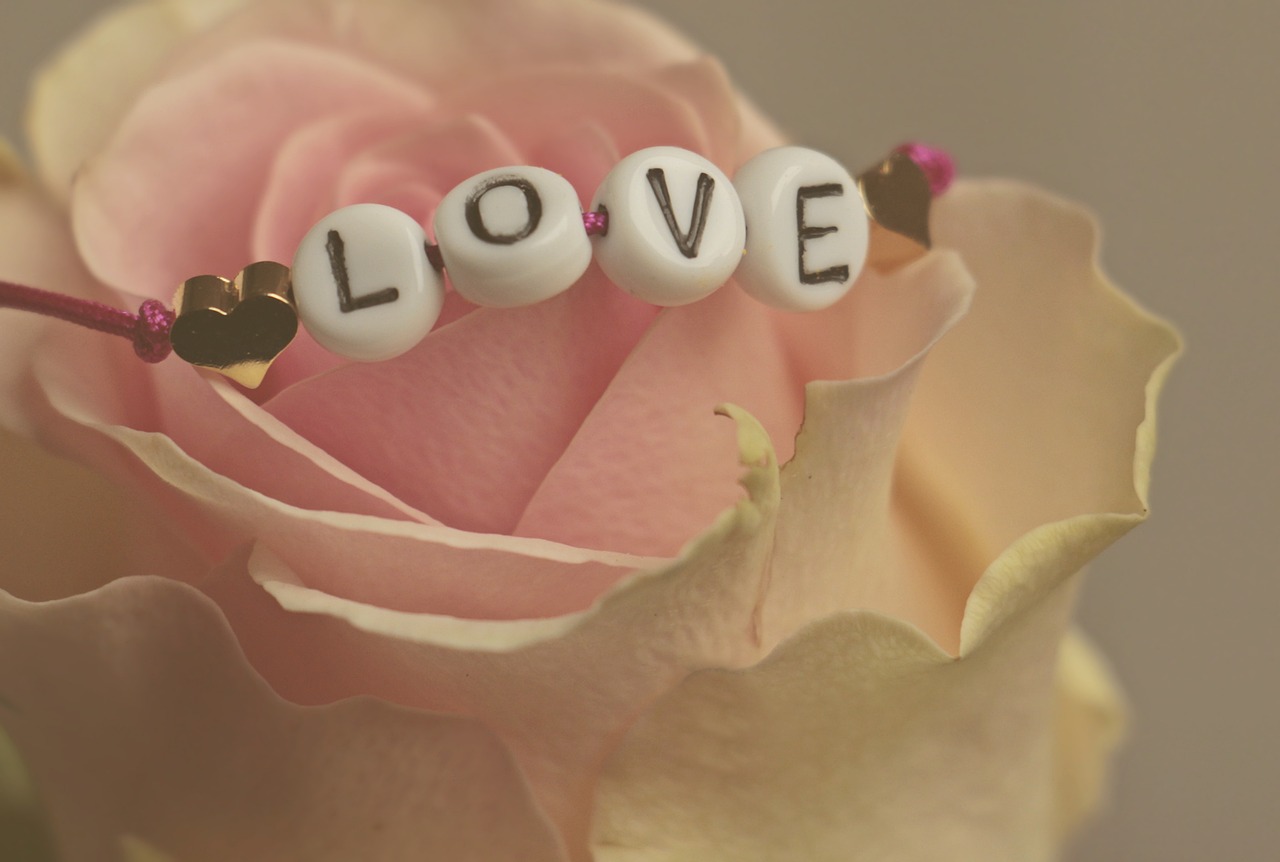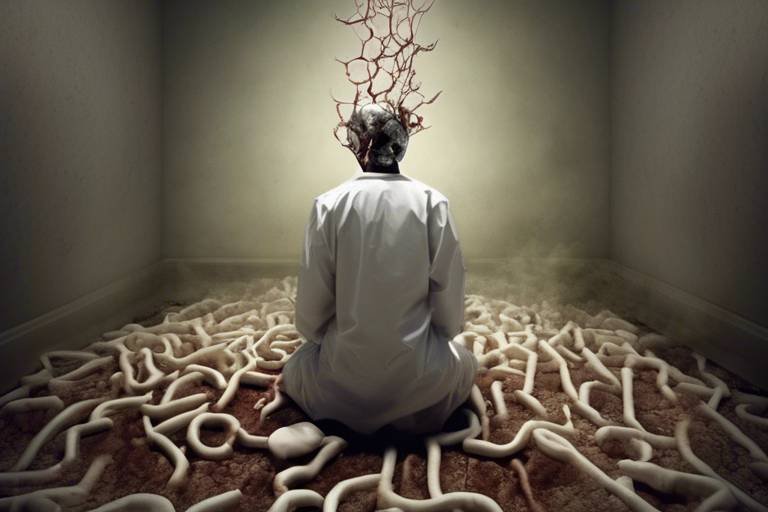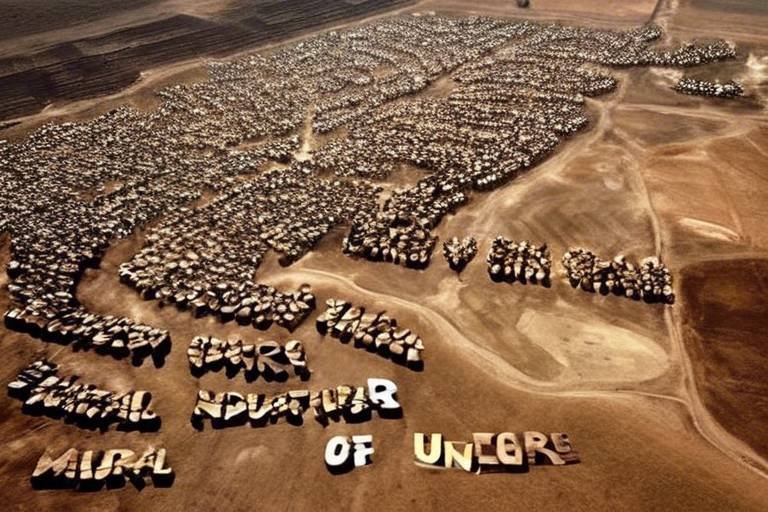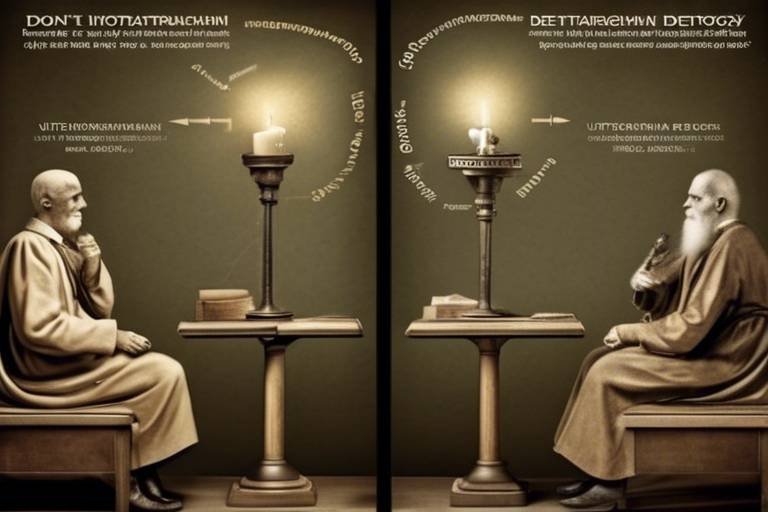The Philosophy of Love - Is Romance Ethical?
When we think about love, we often find ourselves swimming in a sea of emotions, experiences, and expectations. But have you ever paused to ponder the ethical dimensions of romance? It's a fascinating topic that intertwines our feelings with our moral compass. Love isn't just a simple emotion; it’s a complex web of relationships that can sometimes lead us into murky waters. So, is romance ethical? To tackle this question, we need to dive deep into the essence of love, the responsibilities it carries, and the cultural perspectives that shape our understanding of romantic relationships.
At its core, love can be defined in various ways. We have romantic love, which often brings to mind butterflies in the stomach and dreamy nights. Then there's platonic love, which is more about deep friendships without the romantic spark. And let’s not forget unconditional love, the kind that parents often feel for their children, where no conditions are placed on affection. Each of these forms of love carries unique implications for ethics in relationships. For instance, how does unconditional love affect our expectations of others? Does it mean we should overlook their flaws? Understanding these nuances is crucial for evaluating the ethical landscape of romance.
Romantic relationships are often riddled with ethical dilemmas. Think about it: when you enter a relationship, you’re not just sharing your heart; you’re also sharing responsibilities. Partners owe each other a certain level of respect, honesty, and care. This brings us to the concept of consent, which is a foundational ethical principle in romance. Consent isn't just a checkbox; it’s about ensuring that both partners are fully on board with the relationship dynamic. It shapes how we interact, the boundaries we set, and the trust we build. Without consent, relationships can quickly devolve into ethical quagmires.
In romantic relationships, partners navigate a landscape filled with ethical responsibilities. These responsibilities include being honest about feelings, communicating openly, and considering how their actions affect one another. For example, if one partner decides to pursue a job opportunity that requires moving across the country, the other partner must be included in that decision-making process. This is where the ethics of love come into play; it’s not just about individual desires but also about the impact on the relationship as a whole.
Consent is not just a buzzword; it’s a crucial element that can make or break a relationship. Imagine going to a party without knowing if you’re invited. That’s how relationships feel without clear consent! Informed and enthusiastic consent ensures that both partners are engaging in the relationship willingly and joyfully. It’s about mutual respect and understanding, creating a safe space where both individuals can express their needs and desires freely. When consent is present, love flourishes; when it’s absent, ethical concerns arise.
Setting and respecting boundaries is vital in any romantic relationship. Think of boundaries as the invisible lines that define where one person ends and another begins. Clear communication about these boundaries fosters ethical interactions and mutual respect. For instance, discussing what each partner is comfortable with regarding physical affection or emotional sharing can prevent misunderstandings and build trust. When boundaries are respected, both partners feel valued and secure, enhancing the ethical foundation of their romance.
Ignoring consent can lead to significant ethical violations. It’s like driving a car without checking your mirrors; you might not see the danger until it’s too late. The potential harm caused by disregarding consent can be profound, leading to feelings of betrayal, emotional trauma, and a breakdown of trust. It’s essential to prioritize consent in all romantic contexts to ensure that both partners feel safe and respected. The consequences of ignoring this principle can ripple through the relationship, causing lasting damage.
The balance between love and individual autonomy is a delicate dance. On one hand, love can enhance personal autonomy, offering support and encouragement to pursue individual goals. On the other hand, it can sometimes hinder autonomy, leading to feelings of dependency or control. This raises important ethical questions about freedom and choice in romantic relationships. Are we truly free to be ourselves when we’re in love, or do we lose a part of our individuality? Navigating this balance is crucial for maintaining an ethical romance.
Cultural perspectives on love significantly influence ethical considerations in relationships. Different cultures define and approach romance in unique ways, shaping their ethical beliefs. For example, in some cultures, arranged marriages are common, emphasizing family ties over individual choice. This raises ethical questions about autonomy and consent. How do cultural norms impact our understanding of what is ethical in love? It’s a complex issue that highlights the diversity of human experience.
When we examine love through the lens of various ethical frameworks, we gain diverse insights. Consider the three major ethical theories: utilitarianism, which focuses on the greatest good for the greatest number; deontology, which emphasizes duties and rules; and virtue ethics, which centers on character and moral virtues. Each framework offers a different perspective on ethical decision-making in romantic relationships, highlighting the multifaceted nature of love and ethics.
Cultural norms can create ethical dilemmas in romance. Societal expectations often dictate how we should behave in relationships, which can lead to conflicts between personal desires and cultural obligations. For example, in some cultures, there may be pressure to marry young or to prioritize family reputation over personal happiness. These societal expectations can complicate the ethical landscape of romance, forcing individuals to navigate challenging choices.
- What is the role of consent in romantic relationships? Consent is essential for ensuring that both partners feel safe and respected in their relationship. It involves clear communication and mutual agreement on boundaries.
- How do cultural differences affect romantic ethics? Cultural norms shape our understanding of love and ethics, influencing everything from relationship dynamics to expectations around marriage.
- Can love enhance personal autonomy? Yes, love can provide support and encouragement, allowing individuals to pursue their goals while maintaining their sense of self.

The Nature of Love
This article explores the ethical dimensions of romance, examining philosophical perspectives on love, relationships, and moral considerations that arise in romantic contexts. It seeks to answer whether romance can be deemed ethical.
Understanding love's essence is crucial for ethical evaluation. Love is not merely a feeling; it’s a complex tapestry woven from various threads of emotion, connection, and commitment. When we think about love, we often envision romantic love, but it’s essential to recognize that love can take many forms. There’s romantic love, which is often characterized by passion and intimacy; platonic love, which embodies deep friendship without romantic involvement; and unconditional love, where affection is given freely without expectation of reciprocation. Each type of love brings its unique implications for ethical considerations.
Romantic love, for instance, is often idealized in literature and media, leading us to believe in a fairy-tale notion of love that can sometimes cloud our judgment. We might think that love conquers all, but what happens when the realities of life challenge this belief? In many cases, romantic love can lead to ethical dilemmas. The emotional intensity can blind partners to their responsibilities toward each other. This raises the question: can love itself be ethical if it leads us to act in ways that are harmful to ourselves or others?
On the other hand, platonic love offers a different perspective. It emphasizes companionship and emotional support without the complications of romantic expectations. This form of love can often lead to more ethical interactions because it typically lacks the possessiveness and jealousy that can accompany romantic relationships. Unconditional love, such as that often found in familial relationships, can also pose ethical challenges. While it promotes acceptance and support, it can sometimes lead to enabling harmful behaviors, as loved ones might overlook serious issues due to their emotional ties.
To further explore the nature of love, let’s consider a few key aspects:
- Emotional Connection: The bond that forms between individuals, influencing their actions and decisions.
- Commitment: The decision to maintain a relationship despite challenges, which can lead to ethical responsibilities.
- Mutual Respect: A fundamental component that ensures both partners feel valued and heard.
These facets of love intertwine and create a rich landscape of emotional experiences, but they also raise questions about the ethical implications of our actions within these relationships. For instance, when love is present, how do we navigate the complexities of honesty and transparency? Are we always truthful with our partners, or do we sometimes choose to withhold information to protect their feelings? These dilemmas highlight the intricate balance between love and ethics.
In conclusion, the nature of love is multifaceted and deeply influential in shaping our ethical landscape. As we navigate our relationships, it’s essential to reflect on how our understanding of love impacts our actions and decisions. Are we fostering connections that promote mutual respect and understanding, or are we allowing the complexities of love to cloud our ethical responsibilities? These questions are vital as we explore the romantic landscape and the ethical dimensions that come with it.
Q1: What is the difference between romantic love and platonic love?
A1: Romantic love involves emotional and physical attraction, often leading to intimacy, while platonic love is a deep friendship without romantic or sexual elements.
Q2: Can love be ethical?
A2: Yes, love can be ethical when it promotes mutual respect, honesty, and understanding between partners, ensuring that both individuals' well-being is prioritized.
Q3: How do cultural perspectives influence our understanding of love?
A3: Different cultures have varying definitions and practices surrounding love, which can shape ethical beliefs and expectations in romantic relationships.

When we dive into the world of romantic relationships, we quickly realize that they are not just about love and affection; they are also intertwined with a complex web of ethical considerations. At the heart of any romantic relationship lies a set of moral responsibilities that each partner holds towards the other. These responsibilities encompass a variety of factors, including consent, honesty, and the overall impact of one’s actions on the well-being of their partner. So, what does it mean to be ethical in love? And how can we navigate the often murky waters of romance while ensuring that we uphold our moral obligations?
One of the most significant ethical dilemmas in romantic relationships arises from the question of consent. Consent is not merely a checkbox to tick off; it’s a foundational principle that ensures both partners feel safe and respected. Imagine trying to build a house on shaky ground—without a solid foundation, everything can come crashing down. Similarly, without clear and enthusiastic consent, a romantic relationship can quickly devolve into a space of confusion and hurt. In this light, understanding the nuances of consent becomes crucial. It's not just about saying "yes" or "no" but about engaging in an ongoing conversation that respects each individual's autonomy and desires.
Moreover, the importance of honesty cannot be overstated. In romantic relationships, partners are often privy to each other's vulnerabilities, dreams, and fears. This intimate sharing creates a bond that should be nurtured through transparency. When one partner withholds information or lies, it can lead to a breakdown of trust, making it difficult to maintain a healthy relationship. Think of honesty as the glue that holds the relationship together—without it, the connection can weaken, leading to misunderstandings and resentment.
Another critical aspect of ethics in romance is the impact of actions. Every decision we make in a relationship can have a ripple effect on our partner's emotional and mental well-being. For instance, consider the following scenarios:
| Action | Potential Impact |
|---|---|
| Ignoring your partner's feelings | Can lead to feelings of neglect and resentment |
| Surprising your partner with a romantic gesture | Can enhance emotional connection and happiness |
| Being dishonest about a significant issue | Can result in a breach of trust and potential relationship breakdown |
As illustrated, our choices in a romantic context can either strengthen or weaken the bond we share with our partner. This brings us to the importance of negotiating boundaries within the relationship. Each individual comes with their own set of experiences and expectations, and communicating these openly is essential for fostering a respectful and ethical relationship. Setting boundaries is akin to drawing a map—without it, partners may find themselves lost, navigating through uncharted territories of discomfort and misunderstanding.
In conclusion, the ethics of romantic relationships demand that we engage in a thoughtful examination of our actions and their implications. By prioritizing consent, practicing honesty, and being mindful of the impact we have on one another, we can cultivate relationships that are not only fulfilling but also ethical. After all, love is not just about passion and romance; it’s about respect, understanding, and a commitment to each other's well-being.
- What is the role of consent in romantic relationships? Consent is crucial as it ensures that both partners feel safe and respected in their interactions.
- How can I communicate my boundaries effectively? Open and honest discussions about what you are comfortable with are key to establishing and respecting boundaries.
- What are the consequences of ignoring ethical principles in romance? Ignoring ethical principles can lead to trust issues, emotional harm, and ultimately, the breakdown of the relationship.

Consent is often touted as the backbone of ethical romantic relationships, yet its significance can sometimes be overlooked. When we think about romance, we usually envision passion, connection, and intimacy, but at the core of these experiences lies consent. It’s not just a buzzword; it’s the very foundation that allows love to flourish in a safe and respectful environment. Without consent, the beauty of romantic interactions can quickly turn into a murky realm filled with misunderstandings and violations.
So, what exactly does consent mean in the context of romance? It goes beyond simply saying "yes" or "no." True consent is informed, enthusiastic, and ongoing. This means that both partners should have a clear understanding of what they are agreeing to, and they should feel excited about participating in the romantic experience. It's a bit like dancing; you wouldn't want to step on your partner's toes or lead them in a direction they’re not comfortable with. Just as in dance, both partners must be in sync, communicating openly about their desires and boundaries.
The importance of consent can be illustrated by considering the following key elements:
- Informed: Both partners should be aware of what they are consenting to, including any potential risks involved.
- Enthusiastic: Consent should be given freely and with genuine eagerness, not out of obligation or pressure.
- Ongoing: Consent isn’t a one-time agreement. It should be revisited and reaffirmed throughout the relationship, adapting as feelings and circumstances change.
When partners prioritize consent, they create a foundation of trust and respect. This not only enhances their emotional connection but also encourages open dialogue about desires, fears, and boundaries. It’s like building a house; if the foundation is shaky, the entire structure is at risk. In romantic relationships, when consent is prioritized, it fosters an environment where both partners feel safe to express themselves, explore their desires, and grow together.
However, the consequences of ignoring consent can be dire. When one partner disregards the other’s boundaries or fails to seek explicit agreement, it can lead to feelings of betrayal, confusion, and emotional pain. This isn’t just an ethical violation; it can have lasting impacts on an individual’s mental health and self-esteem. The fallout from such actions can ripple through the relationship, creating distrust and resentment that can be hard to heal.
Thus, it’s crucial for individuals in romantic relationships to actively engage in conversations about consent. These discussions can help clarify expectations and ensure that both partners are on the same page. It’s not always easy to navigate these conversations, but they are essential for fostering a healthy relationship dynamic. Think of it as a continuous check-in; just like you wouldn’t skip regular maintenance on your car, you shouldn’t neglect the emotional upkeep of your relationship.
In conclusion, the role of consent in romance cannot be overstated. It is the bedrock of ethical relationships, ensuring that love is expressed in a manner that respects the autonomy and well-being of both partners. By committing to informed, enthusiastic, and ongoing consent, individuals can create a romantic experience that is not only ethical but also deeply fulfilling. After all, love should be a journey of mutual respect, understanding, and joy, not a path paved with confusion and hurt.

In the intricate dance of romance, negotiating boundaries is like setting the stage for a beautiful performance. Just as dancers must understand their movements and the space they occupy, partners in a romantic relationship need to communicate their limits and desires clearly. This process is vital not only for personal comfort but also for fostering a sense of mutual respect and understanding. Imagine trying to enjoy a concert where the musicians don't communicate with each other; it would be chaotic, right? Similarly, without clear boundaries, romantic relationships can quickly become confusing and fraught with misunderstandings.
When discussing boundaries, it's essential to recognize that they can vary significantly from one person to another. Some individuals may feel comfortable with physical intimacy early on, while others might prefer to take things slow. This is where open communication becomes crucial. Partners should feel safe to express their feelings and preferences without fear of judgment. For instance, if one partner is not ready for a particular level of intimacy, it’s important for the other to respect that boundary. This can be likened to a gardener tending to their plants; by nurturing and respecting each plant's unique needs, the garden flourishes.
To facilitate this process, couples can engage in discussions that help clarify their boundaries. Here are some key aspects to consider during these conversations:
- Personal Space: How much alone time does each partner need?
- Emotional Boundaries: What topics are off-limits, and how do partners prefer to express their feelings?
- Physical Boundaries: What level of physical affection is comfortable for each partner?
- Social Boundaries: How do partners feel about public displays of affection and interactions with friends?
By discussing these aspects openly, partners can create a safe environment where both individuals feel valued and understood. It’s about creating a roadmap for the relationship, ensuring that both partners are on the same page. This proactive approach not only strengthens the relationship but also reduces the likelihood of future conflicts.
Moreover, it's important to remember that boundaries are not set in stone. As relationships evolve, so too can the boundaries that define them. Regular check-ins can help partners assess whether their boundaries still align or if adjustments are necessary. Think of it as a continuous dialogue where both voices matter. This adaptability is key to maintaining a healthy relationship dynamic.
In conclusion, negotiating boundaries is an essential component of ethical romance. It empowers individuals to express their needs while fostering a culture of respect and understanding. Just like a well-rehearsed duet, when both partners know their roles and boundaries, the relationship can flourish harmoniously.
- What are the most common boundaries in romantic relationships?
Common boundaries include personal space, emotional sharing, physical intimacy, and social interactions. - How can I communicate my boundaries effectively?
Be honest, clear, and respectful when discussing your boundaries. Use "I" statements to express your feelings. - What should I do if my partner violates my boundaries?
Address the issue calmly and directly. Discuss how the violation made you feel and reiterate your boundaries. - Are boundaries the same in every relationship?
No, boundaries can vary greatly based on individual preferences, cultural backgrounds, and the nature of the relationship.

Ignoring consent in romantic relationships is not just a minor oversight; it can lead to profound and damaging consequences for all parties involved. When one partner disregards the other's autonomy and fails to seek or respect consent, it can create a ripple effect of emotional and psychological harm. Imagine stepping into a dance without your partner's agreement; the result is chaos, discomfort, and a complete breakdown of trust. In the realm of romance, this chaos manifests in various ways, affecting emotional well-being and the overall health of the relationship.
One of the most immediate consequences of ignoring consent is the erosion of trust. Trust is the bedrock of any romantic relationship, and when consent is overlooked, it shatters the foundation upon which the relationship is built. Partners may feel violated, leading to feelings of betrayal that can linger long after the incident. This breach of trust can result in:
- Emotional Distress: Victims of consent violations often experience anxiety, depression, and a sense of helplessness.
- Loss of Intimacy: Once trust is broken, intimacy can become elusive. Partners may feel uncomfortable or unsafe, leading to a withdrawal from emotional and physical closeness.
- Long-term Psychological Effects: The ramifications can extend beyond the relationship, impacting mental health and future relationships.
Furthermore, ignoring consent can lead to serious ethical and legal ramifications. In many jurisdictions, non-consensual acts can be classified as sexual assault or abuse, resulting in legal consequences for the perpetrator. This not only tarnishes reputations but can also lead to criminal charges, which can have lasting effects on one's life and relationships. It's crucial to recognize that consent is not just a moral obligation; it is a legal requirement that protects individuals from harm.
Additionally, the societal implications of ignoring consent cannot be overlooked. When consent is routinely disregarded, it perpetuates a culture of silence and complicity, where individuals may feel pressured to remain quiet about their experiences. This culture can normalize harmful behaviors and create an environment where individuals are discouraged from speaking out, further entrenching the cycle of abuse and misunderstanding surrounding consent.
In conclusion, the consequences of ignoring consent in romantic relationships are far-reaching and multifaceted. From emotional distress and loss of trust to legal repercussions and societal implications, the stakes are incredibly high. It is imperative for all individuals engaged in romantic endeavors to prioritize consent, ensuring that every interaction is grounded in mutual respect and understanding. After all, a healthy relationship thrives on the foundation of trust, respect, and clear communication.
- What is consent in a romantic relationship?
Consent refers to the agreement between partners to engage in specific actions, ensuring that both individuals feel comfortable and respected. - Why is consent important?
Consent is crucial because it establishes trust and respect, which are fundamental components of any healthy relationship. - What are the signs of ignoring consent?
Signs include pressure to engage in activities, lack of communication about boundaries, and dismissive attitudes toward a partner's feelings. - How can partners ensure they are respecting each other's consent?
Open communication, regular check-ins about comfort levels, and a willingness to listen and adapt are key to respecting consent.

When we think about love, it often conjures up images of two people intertwined, sharing their lives, dreams, and aspirations. However, lurking beneath this romantic veneer is a complex relationship between love and personal autonomy. How do we maintain our individuality while being part of a couple? Is it possible to love someone deeply without losing a sense of self? These questions are vital as they probe the ethical dimensions of romantic relationships.
At its core, autonomy refers to the ability to make choices for oneself, to act according to one's own values and beliefs. In a romantic context, love can either serve as a catalyst for personal growth or a constraint on personal freedom. For instance, when partners support each other's ambitions and respect each other's decisions, love can be a powerful force that enhances autonomy. Imagine a couple where one partner is pursuing a career change. If the other partner encourages this leap of faith, they are not just fostering love; they are also nurturing personal autonomy.
Conversely, love can sometimes lead to a loss of autonomy. Think about a relationship where one partner is overly controlling or dismissive of the other's desires. In such cases, love can morph into a form of possessiveness, where one partner's needs overshadow the other’s. This imbalance raises ethical concerns about the nature of love itself. Can we call it love if it stifles the freedom of one partner? The answer is a resounding no. Ethical love respects the individuality of both partners, allowing them to flourish both together and separately.
To illustrate this further, consider the following scenarios:
| Scenario | Impact on Autonomy |
|---|---|
| Partner A encourages Partner B to pursue further education. | Enhances autonomy |
| Partner A insists that Partner B quit their job to focus on the relationship. | Restricts autonomy |
| Both partners discuss and agree on shared goals. | Supports mutual autonomy |
As we navigate the waters of love and autonomy, it’s essential to engage in open dialogues about personal boundaries and desires. This is where communication becomes key. Partners should feel free to express their needs without fear of judgment or retribution. When both individuals in a relationship are empowered to voice their thoughts and feelings, it fosters a healthier dynamic that respects autonomy while nurturing love.
But what happens when love and autonomy clash? It can lead to ethical dilemmas that require careful consideration. For instance, if one partner wants to relocate for a job opportunity while the other prefers to stay, how do they reconcile their desires? This scenario illustrates the delicate balance that must be struck between love and personal freedom. It’s crucial for partners to approach such dilemmas with empathy and a willingness to compromise, ensuring that neither party feels pressured to sacrifice their autonomy for the sake of the relationship.
In summary, the relationship between love and autonomy is intricate and multifaceted. Ethical romantic relationships thrive on a foundation of mutual respect, where each partner’s individuality is celebrated rather than suppressed. By fostering open communication and understanding, couples can navigate the complexities of love while maintaining their autonomy, ultimately creating a relationship that is both fulfilling and ethically sound.
- What is autonomy in a romantic relationship?
Autonomy in a romantic relationship refers to the ability of each partner to make their own choices and express their individuality while still being part of a couple. - How can partners support each other's autonomy?
Partners can support each other's autonomy by encouraging personal goals, respecting boundaries, and maintaining open lines of communication. - What are some signs of a healthy balance between love and autonomy?
Signs include mutual respect for each other's decisions, open communication about needs, and a willingness to compromise without coercion. - Can love ever compromise autonomy?
Yes, love can sometimes lead to compromises in autonomy, especially in controlling relationships. It's important to recognize and address such dynamics for a healthy relationship.

Love is a universal emotion, yet its expression and understanding can vary dramatically across different cultures. This rich tapestry of romantic ideals and practices invites us to explore how cultural backgrounds shape our perceptions of love and relationships. For instance, in Western cultures, love is often viewed through the lens of individualism, where personal fulfillment and emotional connection are paramount. In contrast, many Eastern cultures prioritize familial obligations and social harmony, which can influence romantic choices and expectations.
To illustrate this point, let's consider how marriage is approached in various cultures. In some societies, arranged marriages are the norm, where families play a significant role in selecting partners based on compatibility, social status, and family ties. This contrasts sharply with cultures that emphasize love marriages, where individuals choose their partners based on personal feelings. This divergence raises compelling ethical questions: Is it ethical to prioritize familial expectations over individual desires? Or does the collective good of the family take precedence?
Furthermore, the concept of love itself can differ widely. In many cultures, love is not just a romantic notion but also encompasses deep familial bonds, friendships, and community ties. For example, in Mediterranean cultures, the idea of 'filial love'—a deep affection for family members—holds significant importance. This broader understanding of love can lead to different ethical considerations regarding loyalty, sacrifice, and responsibility.
In addition, cultural norms often dictate acceptable expressions of love. In some cultures, public displays of affection are frowned upon, while in others, they are celebrated. This can lead to ethical dilemmas where individuals must navigate their own feelings against societal expectations. Are we being true to ourselves when we hide our affections due to cultural constraints, or is it a sign of respect for our heritage? These questions highlight the intricate dance between personal freedom and cultural loyalty.
Moreover, the rise of globalization has introduced new dynamics to how love is perceived and practiced. As cultures intermingle, traditional notions of love are often challenged, leading to a blend of practices and beliefs. This cultural exchange can foster greater understanding and acceptance, yet it can also create ethical conflicts. For example, how do we reconcile the traditional values of one culture with the progressive ideals of another? This interplay illustrates the ongoing evolution of love and romance in a rapidly changing world.
In conclusion, the exploration of love across different cultures reveals a complex interplay of ethical considerations. From the definitions of love to the expectations surrounding romantic relationships, cultural context plays a crucial role in shaping our experiences. As we navigate these diverse landscapes, it is essential to remain open-minded and respectful, recognizing that love, in all its forms, is a fundamental part of the human experience.
- How does culture influence the way we express love?
Cultural norms dictate acceptable behaviors, including how love is shown, whether through words, actions, or public displays of affection. - Are arranged marriages ethical?
This depends on individual perspectives. Some argue that they prioritize family and social stability, while others believe they undermine personal freedom. - Can love exist without cultural influence?
While love is a universal emotion, its expression is often shaped by cultural contexts, making it difficult to separate love from its cultural influences. - What role does globalization play in changing perceptions of love?
Globalization fosters cultural exchange, challenging traditional notions of love and introducing new ideas and practices into various societies.

When we dive into the intricate web of love and romance, it becomes clear that ethical considerations are not one-size-fits-all. Different philosophical frameworks offer unique lenses through which we can evaluate the morality of our romantic relationships. Understanding these frameworks can illuminate the choices we make in love and help us navigate the sometimes murky waters of ethical dilemmas.
One of the most discussed frameworks is utilitarianism, which posits that the best action is the one that maximizes overall happiness. In romantic contexts, this means considering how our choices impact not just ourselves but also our partners and even the wider community. For example, if a couple decides to open their relationship, they might believe this will enhance their individual happiness, but they must also weigh the potential emotional fallout on each other and others involved. The challenge here is determining what constitutes "happiness" and whose happiness is prioritized.
On the opposite end of the spectrum lies deontology, a framework that emphasizes the importance of rules and duties. According to deontological ethics, certain actions are inherently right or wrong, regardless of the consequences. In romance, this could manifest as a commitment to honesty and fidelity. A deontologist might argue that being unfaithful is wrong, even if it brings temporary happiness to one partner. This perspective raises important questions about the moral obligations we have to one another and the values we uphold in our relationships.
Then there's virtue ethics, which focuses on the character and virtues of the individuals involved rather than the rules or the outcomes of their actions. This framework encourages partners to cultivate traits such as empathy, compassion, and integrity. In a romantic relationship, this might mean striving to be the best version of oneself for the sake of the partnership. Virtue ethics asks us to consider not just what we do, but who we are becoming through our relationships. Are we fostering love, respect, and understanding in our interactions?
To better illustrate these frameworks, let's look at a brief comparison:
| Framework | Key Principle | Focus |
|---|---|---|
| Utilitarianism | Maximizing overall happiness | Consequences of actions |
| Deontology | Adhering to moral rules | Inherent rightness or wrongness of actions |
| Virtue Ethics | Cultivating good character | Personal virtues and moral character |
As we reflect on these frameworks, it's essential to recognize that they are not mutually exclusive. In fact, they often intersect and inform one another. For instance, a relationship might prioritize the happiness of both partners (utilitarianism) while simultaneously adhering to commitments of fidelity (deontology) and encouraging personal growth (virtue ethics). Understanding these ethical dimensions can empower us to make more informed, conscientious decisions in our romantic lives.
Ultimately, the question of whether romance is ethical may not have a definitive answer. Instead, it invites us to engage in ongoing dialogue about our values, responsibilities, and the impact of our choices. By examining love through these different ethical lenses, we can strive to create relationships that are not only fulfilling but also grounded in a strong moral foundation.
- What is the role of ethics in romantic relationships?
Ethics in romantic relationships helps partners navigate their responsibilities towards one another, ensuring that actions are considerate and respectful. - How can I apply these ethical frameworks to my relationship?
By reflecting on how your decisions affect both your happiness and that of your partner, and by considering the moral principles that guide your actions. - Can a relationship be ethical if it doesn't follow traditional norms?
Yes, as long as both partners communicate openly and consent to the terms of their relationship, it can still be considered ethical.

Cultural norms play a significant role in shaping our understanding of love and romance, often dictating what is considered acceptable behavior in relationships. These norms can vary widely across different societies, leading to a complex web of ethical dilemmas that individuals must navigate. For instance, in some cultures, arranged marriages are the norm, where familial approval takes precedence over personal choice. This raises ethical questions about autonomy and the right to choose one's partner versus the expectations of family and society.
Furthermore, the pressure to conform to cultural expectations can lead to situations where individuals feel compelled to compromise their values. Take, for example, the expectation of monogamy in many Western cultures. While some people embrace this ideal, others may find themselves in a dilemma when they develop feelings for someone outside their primary relationship. This situation can lead to feelings of guilt and betrayal, prompting a deeper exploration of the ethical implications of love and loyalty.
In navigating these cultural norms, individuals might encounter ethical dilemmas such as:
- Conformity vs. Authenticity: Should one conform to societal expectations at the expense of personal happiness?
- Family vs. Individual Choice: How do you balance respect for family traditions with the desire for personal agency?
- Love vs. Duty: Is it ethical to choose love over familial obligations?
These dilemmas illustrate the intricate dance between love and the cultural frameworks that surround it. The challenge lies in finding a balance between respecting cultural traditions and honoring personal desires. In many cases, individuals may find themselves grappling with guilt or shame when their feelings or actions deviate from what is culturally accepted. This internal conflict can lead to a broader societal discussion about the evolving nature of love and relationships in a globalized world.
Additionally, the rise of technology and social media has introduced new dimensions to cultural norms surrounding romance. Online dating, for example, has transformed how people meet and interact, often clashing with traditional views on courtship. This shift raises ethical questions about authenticity in relationships, as individuals may present curated versions of themselves online. The pressure to maintain a certain image can lead to disillusionment and ethical concerns about honesty and transparency.
Ultimately, cultural norms and ethical dilemmas in romance are not just personal struggles; they reflect broader societal values and beliefs. As we navigate the complexities of love in a diverse world, it's essential to engage in open dialogues about these issues, fostering understanding and empathy across different cultural perspectives. Only then can we hope to create a more inclusive and ethical framework for love that respects both individual desires and cultural traditions.
- What are cultural norms in romance? Cultural norms in romance refer to the shared expectations and behaviors that societies consider acceptable in romantic relationships.
- How do cultural norms influence ethical dilemmas in love? They shape our beliefs about what is right or wrong in romantic contexts, often leading to conflicts between personal desires and societal expectations.
- Can love exist outside cultural norms? Yes, love can exist outside cultural norms, but individuals may face challenges and ethical dilemmas when their feelings conflict with societal expectations.
Frequently Asked Questions
- What is the essence of love?
The essence of love can be quite complex! It's not just about romance; it encompasses various forms such as platonic and unconditional love. Each type has its own ethical implications, shaping how we interact and relate to one another. Understanding these nuances is essential for evaluating the ethics of our romantic relationships.
- How do ethics play a role in romantic relationships?
Ethics in romantic relationships is all about the moral responsibilities partners have towards each other. This includes being honest, ensuring mutual respect, and understanding the impact of our actions on one another's well-being. When we navigate these aspects thoughtfully, our relationships can flourish ethically.
- Why is consent so important in romance?
Consent is the bedrock of ethical romance! It's not just about saying "yes" or "no"; it involves informed and enthusiastic participation from both partners. When consent is prioritized, it fosters trust and safety, making the relationship more fulfilling for everyone involved.
- What are the consequences of ignoring consent?
Ignoring consent can lead to serious ethical violations, causing emotional and psychological harm. It undermines trust and can create a toxic environment in relationships. Recognizing and respecting consent is crucial to maintaining healthy and ethical romantic interactions.
- How does love affect personal autonomy?
The relationship between love and personal autonomy is a delicate dance. While love can enhance our sense of self and freedom, it can also restrict our choices if not approached ethically. It's vital to find a balance that honors both individual autonomy and the bond shared between partners.
- How do cultural perspectives influence romantic ethics?
Cultural perspectives play a significant role in shaping our views on love and romance. Different societies have unique norms and values that influence how we perceive ethical dilemmas in relationships. By exploring these cultural differences, we can gain a richer understanding of romance and its ethical dimensions.
- What are some ethical frameworks that apply to romance?
There are several ethical frameworks that can guide our understanding of romance, including utilitarianism, deontology, and virtue ethics. Each framework offers distinct insights into how we should navigate love and relationships, helping us make more informed and ethical decisions.
- What ethical dilemmas arise from cultural norms in romance?
Cultural norms can often create ethical dilemmas in romantic relationships. Societal expectations may pressure individuals to conform, leading to conflicts between personal desires and cultural values. Recognizing and addressing these dilemmas is crucial for fostering ethical romance that respects both individual and cultural identities.



















